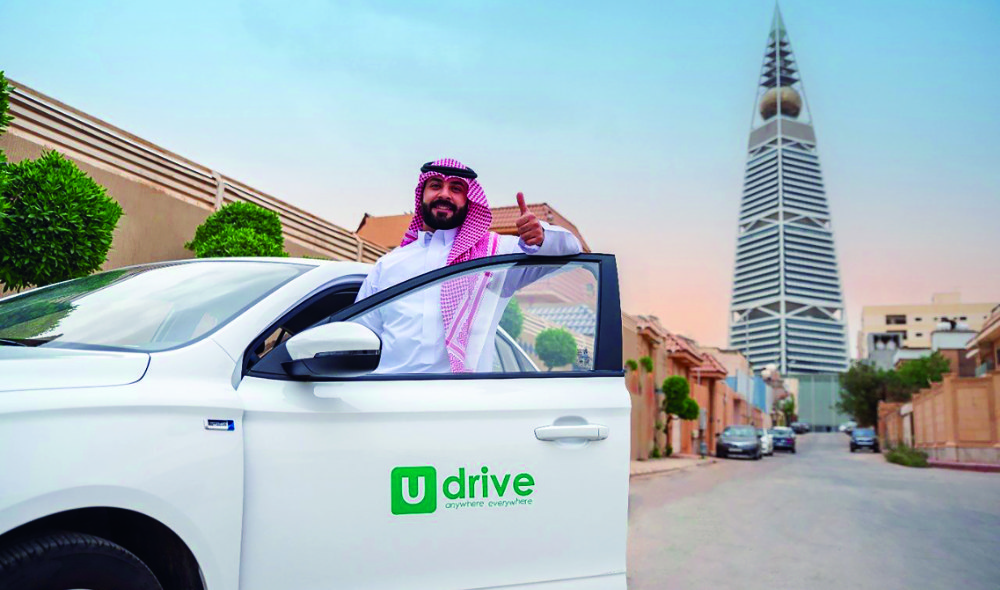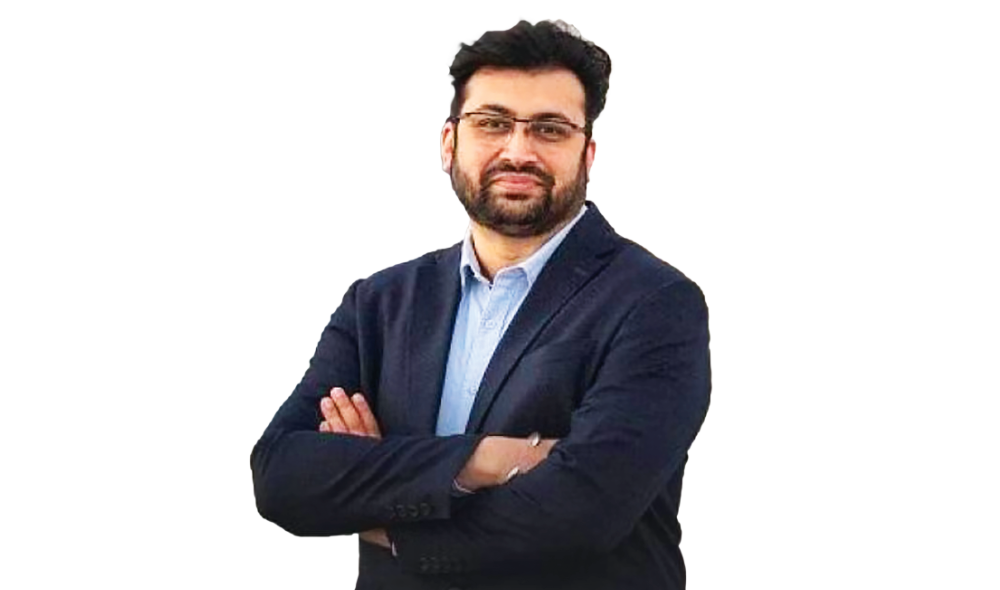DUBAI: Shared mobility is gradually gaining a foothold in the Gulf Cooperation Council region as the automobile industry predictably joins other sectors in adapting to the sharing economy.
Whether it is renting out office space, an Airbnb vacation home, or a fancy dress for a special occasion, more people around the world are embracing the concept of sharing resources and services as opposed to owning them.
Companies are also changing their business models by leveraging the ongoing shift to a sharing economy and the transport sector is no exception.
In fact, the number of users in the car-sharing segment worldwide is likely to grow to 62.11 million by 2027, according to a report issued by Germany-based data-gathering platform Statista.
In the GCC, companies such as Udrive and ekar have dominated the car-sharing space providing customers with an alternative to the existing rental options in cities such as Dubai, Abu Dhabi, and Riyadh.
“There’s a lot of demand for the product,” said Nicholas Watson, the co-founder, and CEO of Udrive, a car-sharing provider in the region.
“The methodology or business model that car-sharing represents, is a fully digital experience with no human interaction. And through that, you streamline access to the vehicles,” which can then be parked anywhere in the city, he said.

With a fleet of 1,000 cars in the UAE mainly Abu Dhabi, Dubai, and Sharjah, Udrive charges customers 1-2 dirhams ($0.27-$0.54) per minute with several options for daily rates.
The car-sharing platform recently launched its operations in the Saudi capital Riyadh with plans to expand its fleet to 1,000 cars by the end of 2023.
It also plans to launch a 1,000-strong fleet of electric vehicles in the next 18 months in Dubai but have similar plans for the Kingdom in near future.
The car-sharing option will also help mitigate the effects of climate change as according to a World Bank report the transportation sector is a major source of emissions accounting for close to 20 percent of the world’s total greenhouse gas emissions.
European statistics show that every car shared removes 17 vehicles off the road, said Udrive CEO.
“That’s where sustainability comes in with car-sharing, we are fractionalizing car rental itself and we are making it available to everybody by the minute,” Watson added.
Reports show that an average passenger car sits idle for 22.5 hours per day. “The key is that the more people become aware that you can rent a car through your mobile phone, open the car through your mobile phone, and drive wherever you want, and end the trip wherever you want,” he told Arab News.

The majority of clients in this region are expatriates, who typically prefer vehicle subscriptions over simply sharing a car from point A to point B. — Soham Shah, CEO of Selfdrive.ae
Unlike rental companies, car-sharing covers all costs for petrol, parking, and insurance without requiring customers to put down any deposit amount or worry about minor damage.
In case of an accident, customers must obtain and submit a police report, as per the law, with all damages covered under comprehensive insurance.
“It removes all the barriers of entry for people who normally wouldn’t be able to rent a car,” many of which fall in the middle to lower-income bracket, also considered the largest mobile and working population, said Watson.
Reports by Statista show the car-sharing segment in Saudi Arabia is projected to grow by 7.54 percent in the next five years with the market volume expected to reach $148.60 million in 2027.
In the UAE, the segment is projected to grow by 5.6 percent during the same period with the market volume likely to hit $102.60 million in 2027.
“When you look at these cities, it’s more about population density and the distances (covered) in average travel,” said Watson.
For example, Dubai is a city with horizontal highways such as Emirates Road and Sheikh Zayed Road, which extend from one end of the emirate to the other.
It consists of areas with huge vertical infrastructures and a high density of people per 100 sq. meters looking to move from one area to another.

We have observed a trend where individuals are moving away from traditional car ownership, and instead are opting for longer-term rentals to meet their needs. — Vilhelm Hedberg, Founder of ekar
This makes Dubai an ideal place for car-sharing, says Watson, whereas Abu Dhabi follows a grid-based system resulting in less congested areas.
“Car-sharing is indeed gaining significant momentum in the Middle East,” said Vilhelm Hedberg, founder of ekar, a self-drive mobility platform.
He pointed to a twofold year-on-year increase in user registrations and usage over the last three years on the platform.
According to him, the shift in consumer behavior is due to several factors, including a higher demand for environmentally friendly urban mobility options, which are affordable, convenient, and flexible at the same time.
HIGHLIGHTS
• More people around the world are embracing the concept of sharing resources and services as opposed to owning them.
• Companies are changing their business models by leveraging the ongoing shift to a sharing economy and the transport sector is no exception.
• The number of users in the car-sharing segment worldwide is likely to grow to 62.11 million by 2027, according to a report issued by data-gathering platform Statista.
“The prices for chauffeur-driven alternatives have increased, making car-sharing a more attractive and cost-effective option,” said Hedberg
He believes, the increase in the adoption of car-sharing services is partly due to the COVID-19 pandemic, which prompted a shift away from public transportation.
“We have also observed a trend where individuals are moving away from traditional car ownership, and instead are opting for longer-term rentals to meet their mobility needs,” he said.
In response to this demand, ekar has recently introduced subscription leasing, offering flexible rental options ranging from 1 to 9 months with a door delivery service.
Similarly, Soham Shah, CEO of Selfdrive.ae, a car rental and monthly subscription platform, believes there is a growing acceptance of car subscription programs, particularly among expatriates residing in the Gulf countries.
According to him, subscription services are especially attractive to individuals who seek a personalized mobility experience but are unable to purchase a car immediately upon arrival in the country.

We are fractionalizing car rental itself and we are making it available to everybody by the minute — Nicholas Watson, Co-founder and CEO of Udrive
“Whether they are in the process of settling down or are aware of a certain timeframe before making a buying decision, they require monthly mobility solutions,” he said.
“The majority of clients in this region are expatriates, who typically prefer vehicle subscriptions over simply sharing a car from point A to point B,” Shah added.
He also described the GCC taxi market as “well-established, highly regulated and maintained,” pointing out that there is a strong inclination toward using local taxis or opting for services like Uber that offer car-sharing.
However, Shah believes the future of mobility in the GCC lies in a sustained ecosystem of on-demand mobility that provides a car-ownership experience without the need for purchasing a car.
The subtle shift in the automobile industry coincides with the region’s increased attention toward combating climate change and its unified vision to create smarter, greener transportation systems.
By providing individuals with convenient access to transportation without the need for private vehicle ownership, car-sharing promotes a shift toward “a more sustainable and environmentally conscious lifestyle,” said Hedberg.
There is no doubt that sharing mobility offers more efficient utilization of vehicles, reducing the number of cars on the road, he added.

















